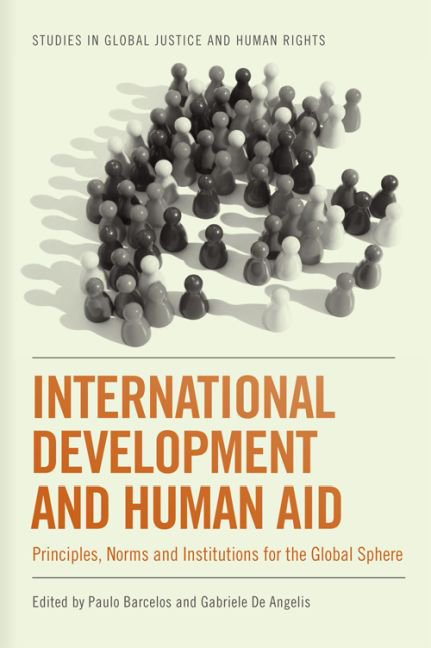Book contents
- Frontmatter
- Contents
- List of Contributors
- Acknowledgements
- 1 Justice in a Complex World: An Introduction
- Part I Human Rights and the World Economy: Questions of Scope
- Part II The Applicability of Global Principles – Some Contemporary Dilemmas
- Part III Justice and International Institutions
- 7 Narrow Versus Comprehensive Justification in Humanitarian Aid: A Case Study of the CERF
- 8 Global Justice and the Mission of the European Union
- Index
8 - Global Justice and the Mission of the European Union
from Part III - Justice and International Institutions
Published online by Cambridge University Press: 26 April 2017
- Frontmatter
- Contents
- List of Contributors
- Acknowledgements
- 1 Justice in a Complex World: An Introduction
- Part I Human Rights and the World Economy: Questions of Scope
- Part II The Applicability of Global Principles – Some Contemporary Dilemmas
- Part III Justice and International Institutions
- 7 Narrow Versus Comprehensive Justification in Humanitarian Aid: A Case Study of the CERF
- 8 Global Justice and the Mission of the European Union
- Index
Summary
UNPRECEDENTED ACHIEVEMENT, UNPRECEDENTED CHALLENGES
When we are thinking about how the European Union should evolve, what competences it should be given, what direction it should take, what is the ultimate objective? The answer is simple: justice. But what is justice? Any conception of justice relevant for our times must combine two elements, both strongly rooted in our European traditions, but neither of them exclusive to them: equal respect for the diversity of conceptions of the good life that characterises our pluralist societies and equal concern for the interests of all members, present and yet to come, of the society concerned. This concern, moreover, must be responsibility-sensitive – distributive justice is not a matter of outcomes but of opportunities – and it must be efficiency-sensitive – a fair distribution need not be a strictly equal distribution, but rather one that sustainably maximises the condition of the worst off. Justice, in brief, means real freedom for all, the greatest real freedom for those with least of it.
But who are the ‘all’ among whom distributive justice requires that real freedom should be distributed fairly? All citizens of our nationstate? All citizens of the European Union? All members of mankind? My answer, here again, is quite simple: ‘all’ means ‘all’, ‘justice’ means ‘global justice’. As regards the fair distribution of resources, any distinction made between human beings in terms of which nation they belong to is as ethically unsustainable as are distinctions made in terms of gender or race. This is not to say, however, that nation-states should vanish. But they are sheer tools to be used, not moral entities to be honoured.
It is against this normative background that we need to appreciate both the mind-boggling, unprecedented achievement constituted by this weird political entity now called the European Union, and the frightening, unprecedented challenges it now faces. To appreciate the magnitude of the achievement, just remember John Stuart Mill's persuasive indictment of multinational and especially multilingual democracy. A multinational political entity can live together forever under a despotic regime, Mill wrote. But make it democratic, and it will fall apart, with political borders soon tending to coincide with national borders.
- Type
- Chapter
- Information
- International Development and Human AidPrinciples, Norms and Institutions for the Global Sphere, pp. 196 - 209Publisher: Edinburgh University PressPrint publication year: 2016

